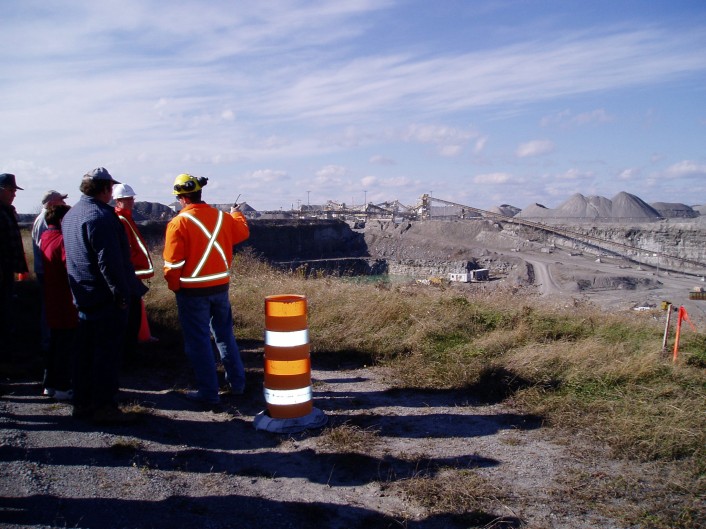If you live in Severn Township, Oro-Medonte, Ramara, or Carden, chances are good that you are familiar with a gravel pit or stone quarry in your neighbourhood. In fact, this whole region has become a major source of supply of aggregates to the Greater Toronto Area. A steady stream of gravel trucks heading south every day attests to the growing significance of this industry.
Where there are aggregate operations, there is almost always conflict. Often that conflict is with the natural environment, as forests and grasslands become holes in the ground. Inevitably, conflicts arise with local communities too, as heavy traffic, noise and dust disrupt quiet rural lifestyles.
Now a new approach is being proposed to help reduce those conflicts. A diverse group of environmentalists, community groups and senior industry executives has developed a set of voluntary standards and a certification process that will “raise the bar” on how aggregate companies operate and interact with surrounding communities. The Couchiching Conservancy has been part of this process over the past three years, as a member of the Board of the Cornerstone Standards Council, the organization spearheading this approach.
On January 6th, Cornerstone released a set of draft standards which individual pit and quarry operations will have to meet to be certified. Seven broad principles cover a range of topics including community benefits, environmental impacts, recycling of aggregates, and site rehabilitation. These principles are fleshed out with detailed standards which go well beyond the legal requirements that are already in place. For example, significant natural areas such as alvars are off limits for new certified operations; if other habitats such as forests are removed, they must be replaced elsewhere in the region.
Like other voluntary certification programs such as FSC (Forest Stewardship Council), the operations seeking certification will be audited by independent trained auditors who report to Cornerstone. For the companies who choose to participate in this program, the main benefit will be an advantage in marketing their products, and over time, a less difficult route to licensing new operations as communities begin to see the benefits of certification.
Cornerstone is seeking feedback on the proposed certification standards from both industry players and anyone concerned about the environmental and community impacts of aggregate operations. On Monday, January 27th, an open house at the Orillia Public Library will provide information about aggregate certification from 3:00 pm to 7:00 pm, with an information presentation at the start of each hour. You can comment on the draft standards on-line at www.cornerstonestandards.ca until March 6th.
Voluntary certification for aggregate operations is an exciting opportunity to improve the performance of an industry that is a big part of this region. Ontario is the first place in North America to develop this approach, and The Couchiching Conservancy is proud to have been part of its birth. Please plan to attend the open house on Monday, and to let Cornerstone know if its standards are high enough to address your concerns about local pits and quarries.
Written by Ron Reid, Carden Coordinator Program Coordinator.

